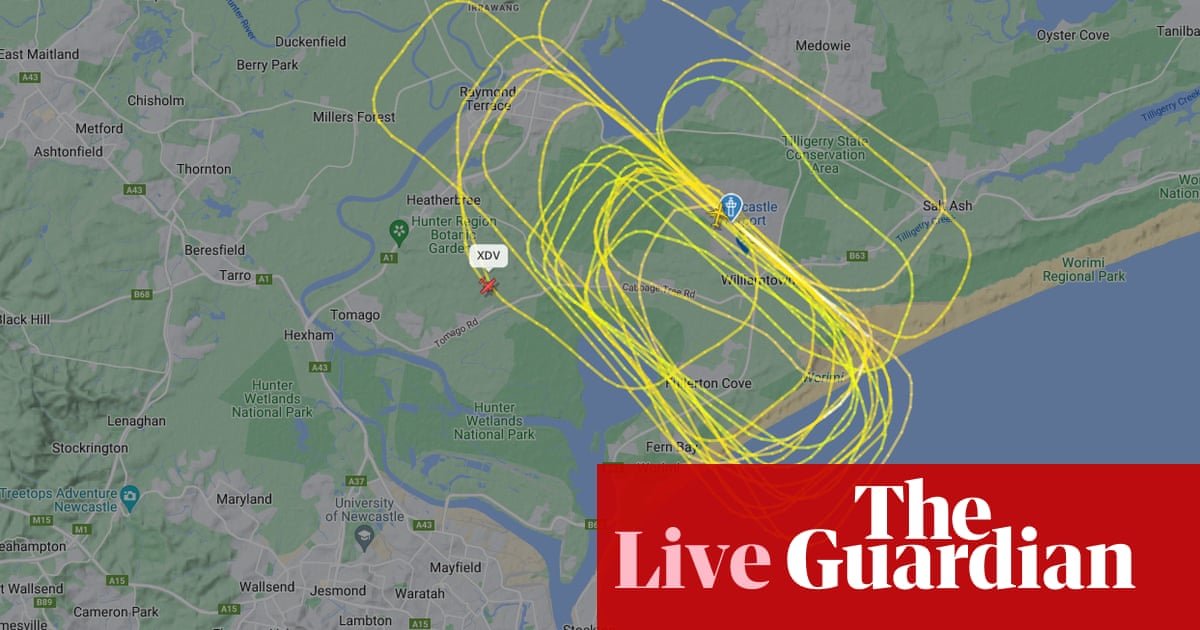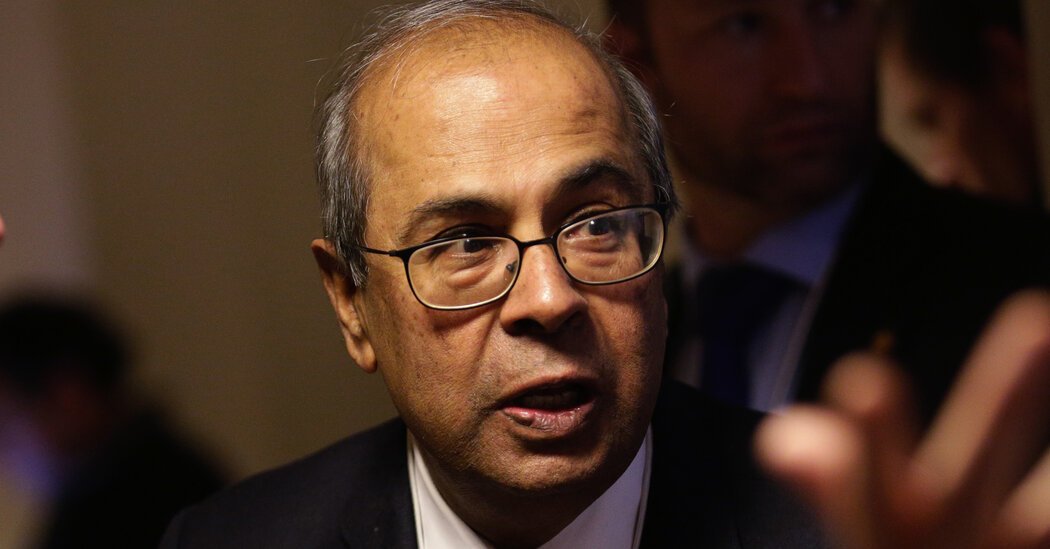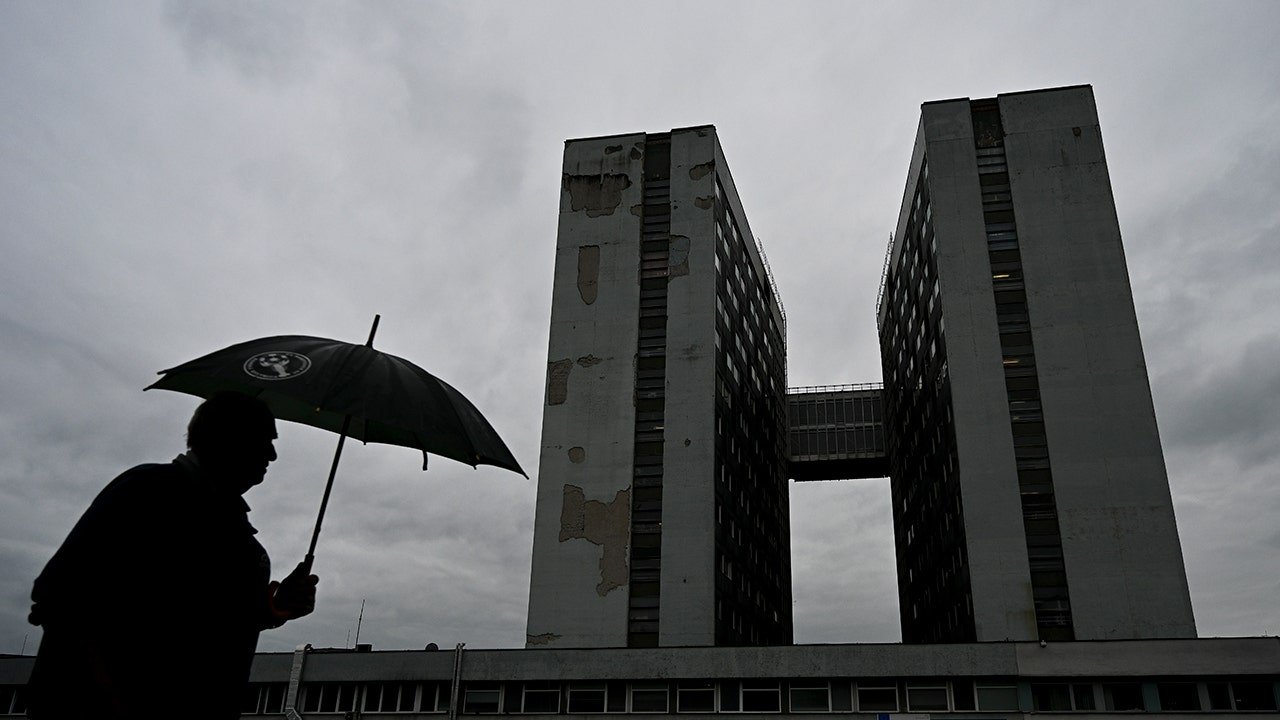Plane circling Newcastle airport amid reports landing gear not working
Elias Visontay
Authorities are bracing for an incident at Newcastle airport in New South Wales amid reports a plane’s landing gear is not functioning properly.
On Monday morning, a small regional turboprop airliner registered on a flight path from Newcastle to Port Macquarie was circling in a holding pattern repeatedly.

A NSW police spokesperson said authorities were responding to reports of a plane with its landing gear in a non-operational state and said it was now running low on fuel.
Ambulance are also responding to the incident.
Key events

Peter Hannam
While many eyes are budget matters, there’s a bit of economic information out today too. NAB‘s monthly business survey is one item, and it tells a story the Reserve Bank will want to hear.
In short, business conditions eased last month, bringing the survey’s main groups back to their long-run averages. Confidence remained steady but slightly below the norm.
Importantly, the employment index eased back too. While not pointing to a decline in jobs at least it was outperforming as much as it was earlier in the year.
In terms of costs, there was some moderation across both labour and input purchases, and retail price growth slowed to 0.9% in quarterly equivalent terms,” NAB said. “Overall, these signs of slowing activity and easing costs support the outlook for gradual improvement in inflation from here, but how quickly this occurs remains to be seen.”
April is, of course, just one of the three months that will make up this quarter. Still, the apparent absence of strong pricing pressure might suggest headline inflation might not perk up that much – if at all – during the current quarter. (Remember that prior to the March “upside surprise”, economists had underestimated how fast inflation was slowing for the previous five months. Perhaps that trend will return.)
Anyway, we’re not quite in Panglossian territory. As NAB’s chief economist Alan Oster notes, we don’t actually want the economy to tank either.
Retail and wholesale forward orders are also quite negative, so that is a worrying sign for the outlook,” Oster said.

Paul Karp
Cap on international students will cost jobs, education council warns
The Independent Tertiary Education Council Australia (Iteca) is concerned about the Albanese government’s plan to cap international student numbers, warning it will cost jobs.
An Iteca spokesperson said:
Although there are some positive approaches regarding quality that Iteca members support, the draft framework sets out a policy direction driven by short-term populism over concerns about overseas migration and tenuous links between the cost of housing in urban centres.
Iteca members have problems with the government’s command-and-control approach to international education set out in the draft framework. It seeks to tell independent tertiary education institutions what they should and shouldn’t offer international students. For international students, the Australian government’s approach is even more profound as it suggests that the government tell students what they will study and where.
On balance, Iteca members believe the framework is a collection of ordinary policy options lumped together with a series of bad ones. It reflects a chaotic approach to international education, where there is little relationship between tertiary education reform, the migration strategy, and a non-existent population strategy.
The advice from Iteca members is clear. The Australian government’s proposed strategy will cost jobs across more than one thousand international skills training and higher education providers committed to providing quality student outcomes.
We’ll bring you a full explainer on how caps will work shortly.

Elias Visontay
Aviation professor on likely conversation between Newcastle pilot and authorities
An aviation professor has shed some light on the conversations likely taking place between authorities and the pilot of a small turboprop regional plane circling above Newcastle airport reportedly without a functioning landing gear.
Doug Drury, a professor of aviation at Central Queensland University, says the pilot of the plane – a Beechcraft B200 Super King Air small turboprop 10-13 seater plane that flies private charter routes out of Eastern Air Services’ base in Port Macquarie – would likely be in constant contact with maintenance teams troubleshooting solutions.
My guess would be it’s not so much burning off fuel as it is trying to figure out what the problem is and if there is anything they can do to fix it prior to having put it on the ground.
If you’re landing without your landing gear, you’re going to do quite a bit of damage to the engines as well as the belly of the aircraft.
I would imagine they would also attempt to do a grass landing if possible, but with all the rain we’ve experienced lately that might make it difficult.
If there are fire crews on ground waiting for this to land, I’d imagine they could also put in on a runway.
They would be in contact with a maintenance team to go through as many trials as they can, like pull this circuit breaker, pull this switch, try this this, try that.

Elias Visontay
Some more on the incident above Newcastle airport, where a plane without a functioning landing gear is circling.
NSW police released a statement saying:
About 9.30am today (Monday 13 May 2024), emergency services were called to Newcastle Airport following reports of an aircraft with mechanical issues.
Officers attached Port Stephens Hunter Police District are on scene.
No further details are known at this stage.
Thousands of people are tracking the plane as it circles Newcastle airport
Plane circling Newcastle airport amid reports landing gear not working

Elias Visontay
Authorities are bracing for an incident at Newcastle airport in New South Wales amid reports a plane’s landing gear is not functioning properly.
On Monday morning, a small regional turboprop airliner registered on a flight path from Newcastle to Port Macquarie was circling in a holding pattern repeatedly.
A NSW police spokesperson said authorities were responding to reports of a plane with its landing gear in a non-operational state and said it was now running low on fuel.
Ambulance are also responding to the incident.
Live sheep exports to end in 2028
The Albanese government has announced its end date for live sheep exports, which was part of its election promises.
As Tory Shepherd reports, the government has announced 2028 as the end of the export trade, with three years for industry to adjust.
The opposition’s Kevin Hogan says the decision proves that Labor doesn’t “care about our farmers, just inner-city elites”.
But it pays to remember that Liberal deputy leader Sussan Ley was once so passionate about the issue, she created a private members’ bill, which was supported by Sarah Henderson, calling on her own government to do the same thing.
That was back in 2018. Early last year, Ley announced she had backflipped on the issue after “reflecting” on “improvements” she said the industry had made and now backed in the Coalition’s position that the trade continue.

Tamsin Rose
Warragamba Dam still spilling
Sydney’s Warragamba Dam continues to spill on Monday after beginning on Sunday morning.
A spokesperson for WaterNSW said the spill rate was about 40 gigalitres per day and decreasing.
The water reservoir last spilled after heavy rain on 6 April, causing catastrophic damage to some homes nearby.
The rate is significantly lower than that spill which peaked at 220 gigalitres per day.
Federal court ends injunction on X over videos of Wakeley church stabbing

Josh Taylor
The federal court has refused to extend an injunction against Elon Musk’s X over 65 tweets containing video of the Wakeley church stabbing, ahead of a final hearing in the case likely in June.
Last month, X was ordered to hide the posts of the stabbing attack on bishop Mar Mari Emmanuel while he was giving a livestreamed service at the Assyrian Christ the Good Shepherd church in the suburb of Wakeley.
eSafety sought a federal court injunction after X only made the tweets unavailable to Australian users and vowed to challenge the notice. The injunction was due to expire on Monday unless the court extended the order ahead of a final hearing expected in mid-June.
Justice Geoffrey Kennett on Monday refused the application to extend the injunction. He said his reasons would likely be published later today on why it was refused, so it is not clear to what extent it is concern over the whole case or just how the injunction was initially put on X.
In a hearing for the injunction on Friday, Kennett heard from X’s barrister, Bret Walker SC, that the wording of the order to hide the tweets was not something X could technically comply with. Kennett said he was “troubled” by that in the hearing.
The case returns to court on Wednesday.
Budget decisions ‘put downward pressure on inflation’, Gallagher says
Peter Hannam wrote a little about the discrepancy between the RBA’s forecasts of when inflation will return to its target band of 2-3% and Treasury’s a little bit earlier today.
When we talk about the RBA target band of inflation, we are talking about the trimmed mean – it is underlying inflation, so all the volatile inputs (so if produce prices increase because of floods etc) are stripped out.
2-3% is what the RBA considers a sustainable rate of inflation – the level it is most compatible with sustainable economic growth (according to the bank).
Inflation is currently at 3.6%. The RBA forecasts it will get to 3% at the end of next year. Treasury thinks it will be the end of this year.
Katy Gallagher spoke to the Nine Network this morning about the difference in predictions:
Well, the inflation projections or the forecasts that are done by the RBA are done independently of government, obviously. The Treasury forecasts, which will be released in the budget, have taken into consideration all of the decisions we’ve taken in the budget. Obviously that wasn’t available to the RBA.
So I don’t think there’s any surprise that there’s a bit of a difference there. But that goes to the point I made that the decisions we’ve taken in this budget put downward pressure on inflation. We want to be part of the solution, not part of the problem.
And we want to make sure we can give people some cost-of-living relief.
So, the tax cuts obviously are the big part of that in this budget, but some further cost-of-living relief in recognition that people are doing it really tough right around the country.
NSW investigating ‘alarming’ non-vote figures in state election
Almost 800,000 people failed to have their votes counted at the 2023 NSW election, prompting a government-led inquiry into the state’s “democratic gap”.
The special minister of state, John Graham, said the inquiry would look at ways to boost the state vote after 791,759 eligible voters failed to get their vote counted at the March poll, which was won by Labor after 12 years in opposition.
Some 74,677 people were eligible to vote but not enrolled, 553,646 were enrolled but did not vote and 163,436 people cast an informal vote.
Graham said in a statement:
It is both alarming and disappointing that almost 800,000 votes did not count at last year’s NSW election.
Unless we tackle this problem, our political system will be less representative and less responsive than it should be.
Closing this democratic gap is important for the future of our electoral system.
Renewables need less maintenance spending – but consumers unlikely to benefit
AAP has looked at whether or not the lower maintenance spend on energy networks as the grid transitions to renewables will mean lower power bills for consumers. And the answer is … don’t get your hopes up:
Consumers are unlikely to benefit from lower maintenance spending by networks as higher-cost coal-fired power plants make way for new energy sources.
The renewable energy transition was expected to slow the growth in electricity maintenance spending and there would be some years where maintenance on electricity generators falls, according to Oxford Economics Australia forecaster Nicholas Fearnley.
“Renewable generators require much less maintenance than fossil fuel generators per megawatt hour, and so maintenance spending will naturally fall as coal power plants are replaced by wind and solar,” Dr. Fearnley said.
While not necessarily bad news for maintenance jobs, as renewable energy expands its footprint, savings are not expected to flow through to power bills.
Instead, reduced spending will be largely offset by growing maintenance spending on transmission networks as they are expanded to unlock new renewable energy zones.

Peter Hannam
(continued from previous post)
However, for households to be pulling back even further (retail sales in March were growing at the slowest pace on record, outside the Covid contortions), seems a pessimistic. The government would have to be uncharacteristically miserly a year out (at the most) from a federal budget, for starters.
Does the forecast gap matter? For the RBA, not necessarily. They’ll look at the data – especially core inflation – as it lands, including the budget’s components, and will cut or lift the cash rate as it sees fit.
But Treasury and its credibility will also be tested.
If they’re wrong it may be because the budget underestimated demand in the economy, and inflation is higher. That would likely mean more revenue (and less spending) than whatever is estimated in the budget, but also less chance of early RBA interest rate cuts.
More to come, especially after 7.30pm AEDT tomorrow.

Peter Hannam
Why is the government more optimistic about inflation than the RBA?
As Karen Middleton detailed this morning, the federal budget will project headline inflation to be back within the Reserve Bank‘s 2%-3% target range by the end of this calendar year – about a year earlier than the RBA forecast.
Without seeing the full budget (we get that tomorrow), it’s not yet possible to understand the discrepancy.
Another curiosity might be how headline inflation eases to 3.5% by June when the mid-year forecast from the end of 2023 had it at 3.75% and we’ve lately seen some March quarter stickiness. (Rounding might be part of the reason.)
The annual rate for the March quarter was 3.6%, slightly above economists’ predictions. Importantly, that prompted the RBA to nudge its June CPI forecast higher to 3.8% when it had been tipping 3.3% by then just three months ago.
Independent economist Chris Richardson noted the RBA’s model used information up to 1 May, which obviously omits tomorrow’s budget. Still, it’s a bit of a puzzle since other information out since the start of May has been mostly about more government spending by the states – perhaps $6bn more from the pre-election budgets for Queensland and Western Australia, and Victoria.
“One possibility is if Treasury sees lower private consumption spending than the RBA does,” Richardson tells us. “That would have the potential to square the circle.”
(continued in next post)










